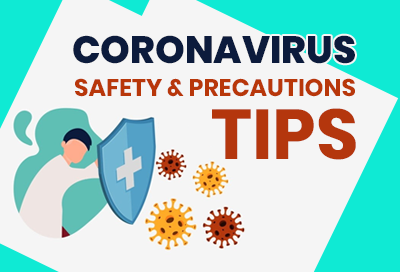
In early 2020, a new infection started creating headlines everywhere throughout the world due to the unprecedented speed of its transmission. Any individual who is sick- regardless of whether they don't know without a doubt they have coronavirus (COVID-19) - should remain at home unless they need medical care. This helps the disease from spreading to others.
The side effects of contamination for the new coronavirus are frequently like those of other respiratory infection diseases, for example, influenza symptoms can incorporate fever, cough, or shortness of breath. Most people will just have mild symptoms, however some can become very sick.
Symptoms Of Coronavirus
Doctors are learning new things about this infection consistently. Up until now, we have known that COVID-19 may not at first cause any symptoms for some individuals. You may carry the infection for 2 days or as long as about fourteen days before you notice symptoms.
Some Normal Symptoms That Have Been Explicitly Connected To COVID-19 Include:
1. Fatigue
2. Shortness of breath
3. A low grade fever that constantly increases in temperature
4. Having a cough that gets over severe over time
Less Normal Symptoms Include:
1. Sore Throat
2. Chills
3. Runny or stuffy nose
4. Loss of smell
5. Loss of taste
6. Headache
7. Muscle aches and pains
These symptoms may turn out to be increasingly extreme in certain individuals. Call emergency medical services in the event that you or somebody you care for having any of the following symptoms:
1. Trouble breathing
2. Confusion
3. Blue lips or face
4. Persistent pain or pressure in chest
5. Excessive drowsiness
The above mentioned full list of symptoms is as yet being examined by the CDC (Centers for Disease Control and Prevention) Trusted Source.
What Treatments Are Available?
There’s at present no treatment explicitly approved COVID-19, and no remedy for a contamination, despite the fact that treatments and vaccines are right now under investigation. Rather, treatment centers on managing symptoms as the infection runs its course. Look for medical help if you think you have COVID-19. Your primary care physician will let you know about Coronavirus- how did it begin and suggest treatment for any symptoms or complications that develop and let you know whether you need to look for emergency treatment.
How To Save Yourself And Others From Coronavirus Disease?
The most ideal approach to prevent the transmission of contamination is to avoid or limit contact with individuals who are showing symptoms of COVID-19 or any respiratory disease. The following best thing you can do is practice acceptable cleanliness and physical distancing to prevent bacteria and infections from being transmitted.
Coronavirus Prevention Tips
1. Wash your hands as often as possible for at least 20 seconds at a time with warm water and cleanser.
2. Try not to contact your face, eyes, nose, or mouth when your hands are filthy.
3. Try not to go out in case you're feeling sick or have any cold or influenza symptoms.
4. Remain at least 6 feet (2 meters) away from individuals.
5. Always cover your mouth with a tissue or within your elbow whenever you sneeze or cough. Throw any tissues you utilize immediately.
6. Clean any items you touch a lot. Use disinfectants on objects like telephones, PCs, utensils, dishware, and door handles.
7. In case you're out in a public setting where it's tough to follow physical distancing rules, the CDC Trusted Source suggests that you wear a face mask that covers your mouth and nose.
Above all else, don’t panic. Following straightforward hand washing and social distancing rules are simply the finest ways to help protect yourself from being exposed to the infection. The 2020 coronavirus presumably appears to be frightening when you read the report about new deaths, isolates, and travel bans. Stay calm and adhere to your doctor's guidelines in case you're diagnosed with COVID-19 so you can recover and help keep it from spreading.